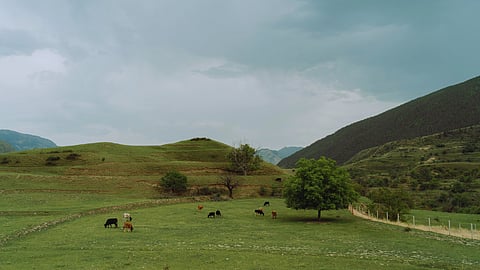Secure property rights key to true land reform in South Africa: Ayanda Zulu
Key topics:
Millions of black South Africans still lack legal property ownership.
ANC land reform failures leave tenure insecure in urban and homeland areas.
FMF's Khaya Lam project shows property rights boost dignity and wealth.
Sign up for your early morning brew of the BizNews Insider to keep you up to speed with the content that matters. The newsletter will land in your inbox at 5:30am weekdays. Register here.
Support South Africa’s bastion of independent journalism, offering balanced insights on investments, business, and the political economy, by joining BizNews Premium. Register here.
If you prefer WhatsApp for updates, sign up to the BizNews channel here.
By Ayanda Sakhile Zulu*
One of the Apartheid system's gravest injustices was denying millions of black people the right to own property and have secure tenure.
Through its racial statism the National Party (NP) reduced them to mere tenants on communal land in urban areas and in the homelands, stripping them of dignity and preventing them from using their properties to build generational wealth that they could pass on to their children.
In response, one of the African National Congress’s (ANC) urgent priorities post 1994 should have been to restore this dignity. Its objective should have been to fast-track the transfer of extensive tracts of state-owned land in urban areas to black South Africans and to recognise private ownership over communal land in the former homelands, so that they could use these instruments to access financing and build generational wealth.
Thirty-one years later, it is a shame, to say the least, that of the 5 to 7 million municipal houses in urban areas (which house close to 20 million people), roughly only 2 million have been registered on the Deeds Registry since 1994, and there remains a backlog of approximately 1 million deeds. This means that there are still millions of black South Africans living in homes they do not legally own, even after decades of residency.
In the former homelands, the situation is no different: millions of black South Africans still live on communal land without secure tenure, held in trust by the state, with traditional leaders acting as custodians. Various enquiries into the Ingonyama Trust (as an example) over the years have shown that this leaves them vulnerable to the disproportionate discretionary powers of traditional leaders.
There is no excuse for the ANC's failure in this aspect of its land reform programme. Its twin demons of corruption and incompetence have undermined and derailed efforts to manage the process of transferring land back to people and establishing secure tenure.
What is particularly unfortunate is that the ANC has not only resorted to cheap populism around the land debate that scapegoats minorities, but it has also signed the dangerous Expropriation Act into law, which paves the way for the state to seize land arbitrarily from individuals with little room for recourse.
Read more:
In line with its Constitutional Land Reform: Alternatives to Confiscation and Land Retribution report, which is part of its broader Liberty First policy initiative (www.LibertyFirst.co.za), the Free Market Foundation is calling on the ANC, which now operates within its so-called Government of National Unity (GNU), to focus on securing titles in urban areas and recognising private ownership over communal land in former homelands.
These are critical areas of land reform that can effect meaningful changes in the lives of millions of people. In this regard, and contrary to the empty accusations of “elitism,” the FMF is not just talking. Through its Khaya Lam project, which was launched in 2013, it has already facilitated the transfer of over 15,000 title deeds to the rightful owners of municipal homes.
It has done this because it recognises that property rights are not merely an extension of individual freedom, but the very bedrock of economic prosperity. A home with a title can be leveraged to access capital. It can be passed down to children, and it provides incentives for people to improve and maintain what is theirs. Ownership changes behaviour because it anchors dignity and unlocks opportunity in a way that state custodianship and political sloganeering never will.
The progress made by Khaya Lam proves that change is possible, but until secure ownership reaches all who deserve it, the promise of land reform will remain incomplete, and many families will continue to live without the dignity and security they should have.
*Ayanda Sakhile Zulu holds a BSocSci in Political Studies from the University of Pretoria and is an intern at the Free Market Foundation.

